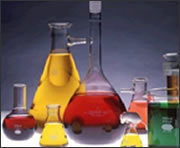
When Paul Helquist was a budding scientist in the 1960s, he had two experiences that led him to where he is today as a professor of chemistry and biochemistry at Notre Dame.
The first came at a National Science Foundation summer program he attended as a high school student.
“It was cool to do real research with instruments, and some computer programming,” he remembers.
Later, as an undergraduate in chemistry at the University of Minnesota, he connected with a mentor who invited him to do research in chemistry, math and organic chemistry for three years. They published two papers in scientific journals, and the mentor eventually helped him with decisions about graduate school.
Helquist earned his doctorate from Cornell University in 1972. After a postdoctoral fellowship at Harvard University, he joined the faculty of State University of New York at Stony Brook, then moved to Notre Dame in 1984.
Today, Hellquist is part of a Notre Dame team searching for new antibiotics and anti-tumor agents, and treatments for illnesses ranging from cancer to Niemann-Pick Type C disease (the disease being addressed by the Ara Parseghian Medical Research Foundation). But for a period last month, he stepped into the role that had been so useful for him: that of mentor.
Helquist served as the chief judge of the Midwestern Regionals of the Siemens Westinghouse Science and Technology Competition, a leading scholarship and awards program for high school students. The competition is nationally famous for identifying the coming generations of scientific researchers. Notre Dame has been hosting the Midwest Regionals since 1998.
Judging at his side was David Leighton, Notre Dame professor of chemical engineering, who took part in the Westinghouse Talent Science Search as a high school senior in 1976.
“It played a big role in my career development, and influenced me to pursue chemical engineering” Leighton says. “I learned how to do research before I ever got to college.”
He also formed a life-long friendship with another contestant who eventually became his roommate at Princeton University.
Leighton also organizes the judging for the Northern Indiana Science and Engineering Fair for area students in fourth grade through high school, which takes place in March at Stepan Center. Working with the various science competitions is a way to “contribute back, and make opportunities for future scientists,” Leighton says.
Helquist praises the Siemens contestants. “They are highly talented, beyond their years. Many are doing graduate-level research. We want to give them further encouragement toward research careers.”
Regional winners were in Washington, D.C., this week (Dec. 5-8) for the national competition, competing for the top prize of a $100,000 scholarship.
How does a high school junior or senior get to that level? Mentoring is the key, says Helquist. Many have opportunities to work with nearby colleges, or with special teachers in high school. Some attend academies that emphasize science and math.
Growing up north of Duluth, Minn., Helquist says he did not have the opportunities to do research that many current students have, but he had a high school physics and chemistry teacher who inspired him. “He has been retired for many years, and must be in his 80s, but I had contact with him last month,” Hellquist said.
The Siemens Foundation regional competition is organized through the Office of Pre-College Programs and overseen by Joan Ball, director. Other regional hosts are the Massachusetts Institute of Technology, Georgia Institute of Technology, Universities of California, Berkeley, and Texas, and Carnegie Mellon University.
During their weekend at Notre Dame, student competitors have more than just the opportunity to compete with one another or to win scholarship money.
The University sponsors a presentation by a noteworthy speaker, the kind of brilliant scientific mind any Nobel Prize hopeful would be pleased to meet. This year, the speaker was Roald Hoffmann, poet, playwright and 1981 Nobel Laureate in chemistry. A native of Poland who was interned in a concentration camp during the Holocaust, he came to the United States in 1949 and studied chemistry at Columbia and Harvard Universities. He is the Frank H. Rhodes Professor of Humane Letters at Cornell.
Its a great opportunity to host the competition, says Dennis Jacobs, himself a professor of chemistry and an associate provost. Its an event in which students, Notre Dame representatives and the Siemens organization direct their focus to pure scientific research.
TopicID: 8463